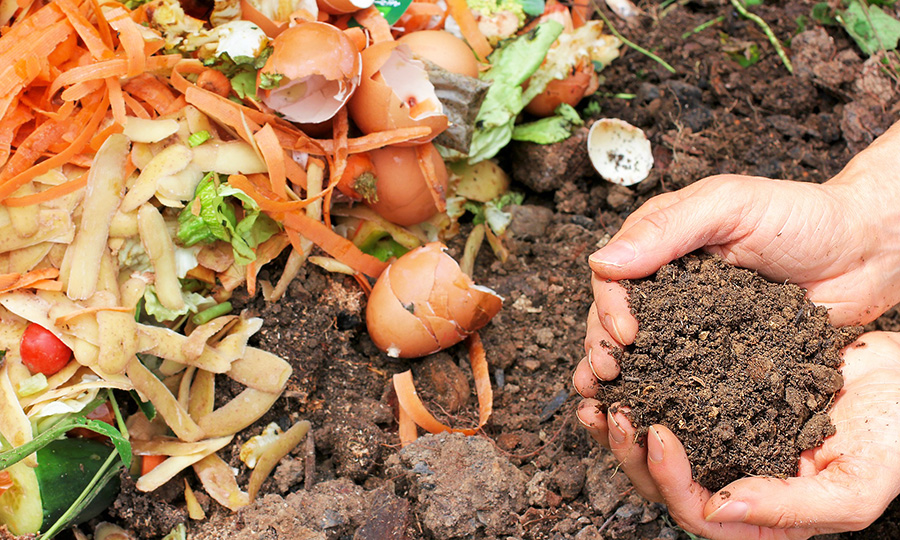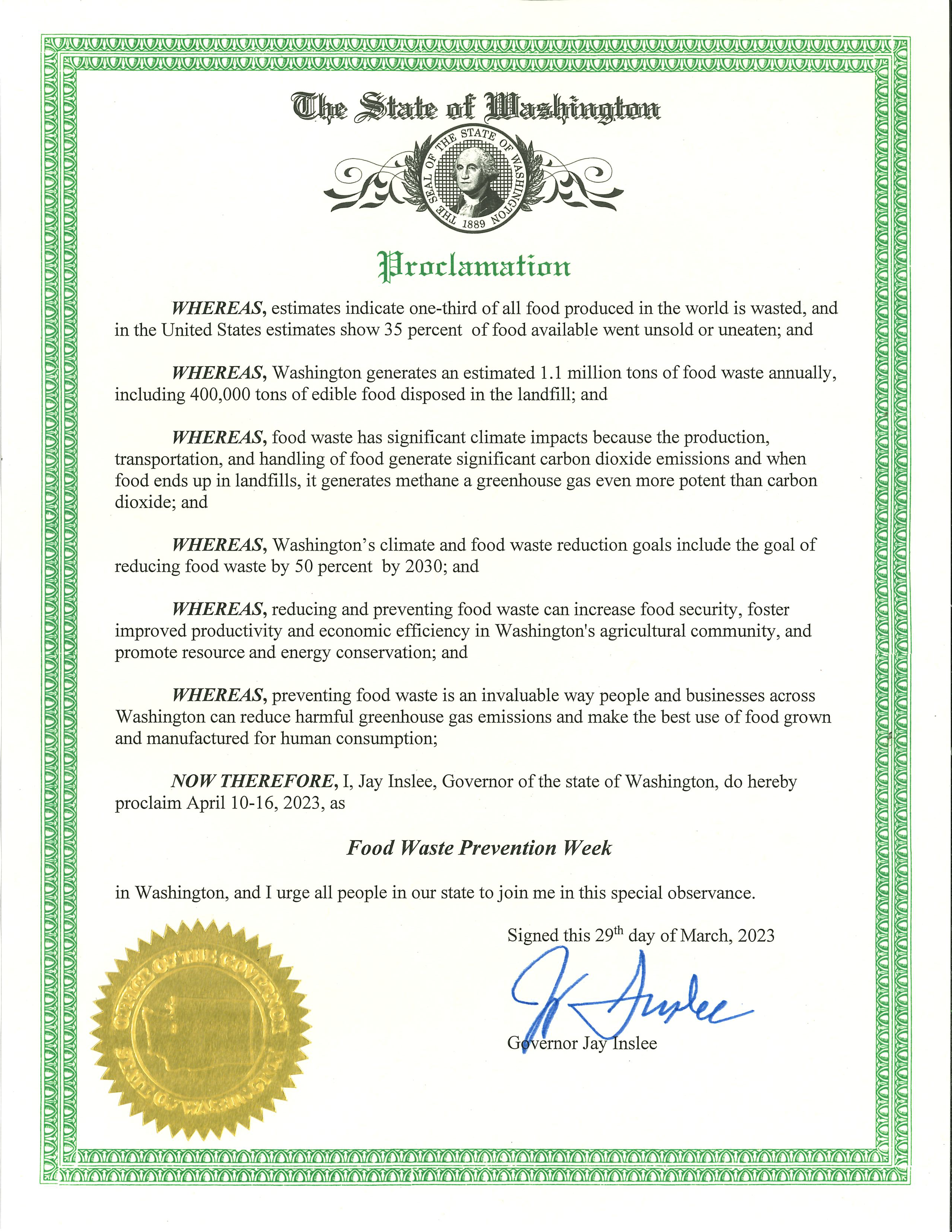During Food Waste Prevention Week, April 10 - 16, people throughout Washington are encouraged to find ways to reduce food waste, which will benefit the environment and save them hundreds of dollars each year.
According to the Natural Resource Defense Council, a family of four can save about $1,500 per year by eliminating food waste. And organic waste like food is a primary source of methane from landfills, a potent greenhouse gas.
Washington Gov. Jay Inslee acknowledged the importance of reducing food waste and proclaimed April 10–16, 2023, Food Waste Prevention Week. The proclamation underscores that reducing and preventing food waste increases food security, improves agricultural productivity and efficiency, promotes resource conservation, and reduces harmful greenhouse gases. Washington Governor Jay Inslee's 2023 Food Waste Prevention Week Proclamation.
Washington’s commitment to supporting a healthy relationship between the food people eat and the environment was formalized in 2019 when the state Legislature directed the Washington Department of Ecology to develop a statewide plan to cut food waste by 50%.
Ecology’s blueprint for the 50% reduction is the Use Food Well Washington Plan, which established the Washington Center for Sustainable Food Management and the statewide food waste reduction campaign.
Reducing food waste conserves resources
From farm fields and fisheries to schools and sports stadiums, wasting less food benefits everyone. It supports a healthy relationship between people and the planet. Even small reductions conserve the resources used to grow, package and transport the food, while increasing Washington’s food security.
“Preventing food waste is an action we can all take to address climate change. Using food well is good for people and the planet,” said Ecology’s Solid Waste Program Manager Laurie Davies. “Food Waste Prevention Week is a reminder that each of us can take small steps and make a big difference.”
Food waste awareness
More than 40 Washington partners join hundreds of others across the nation to kick off Food Waste Prevention Week 2023. The national effort features activities to raise awareness about the problem of wasted food and provide resources that inspire people to reduce food waste at home, work, and in their communities.
A calendar of events and a list of resources are available at the Food Waste Prevention Week website. Activities include social media campaigns, K-12 student coloring contests, sustainability fairs, food waste reduction demonstrations, education tables at farmers markets, and community events to raise awareness on the importance of food waste prevention.
Visit the Food Waste Prevention Week website for more information and simple steps to prevent food waste. The Ecology website is also host to food waste reduction resources.
Food Waste Prevention Week 2023 Washington Partners
- City of Auburn
- City of Bellevue
- City of Federal Way
- City of Issaquah
- City of Lynnwood
- City of Maple Valley
- City of Redmond
- City of Renton
- City of SeaTac
- City of Seattle
- City of Spokane Solid Waste Department
- City of Tacoma Solid Waste Management
- Clark County Public Health
- Darrington Food Bank
- EarthGen
- Food is Free Washington
- GetGreen
- Harvest Against Hunger
- King County Solid Waste Division
- Kittitas County Public Health Department
- Miracle Food Network
- Pierce County
- Port Angeles Food Bank
- Portco Packaging
- Rose of All Trades
- Seattle Community Fridge
- SisterLand Farms
- Skagit Gleaners
- Skagit Valley Food Co-op
- SNAP-Ed WSU Extension Clark County
- Snohomish County WSU Extension
- Sustainable Connections
- Tulalip SNAP-Ed
- Upper Valley MEND - Community Cupboard
- Washington State Department of Ecology
- Washington State University Extension - King County/Metro
- Washington State University Skagit County
- Waste Wise - WSU Extension Island County
- Wilder
- WSU Clallam Extension Waste Prevention Program
- Zero Waste Washington



